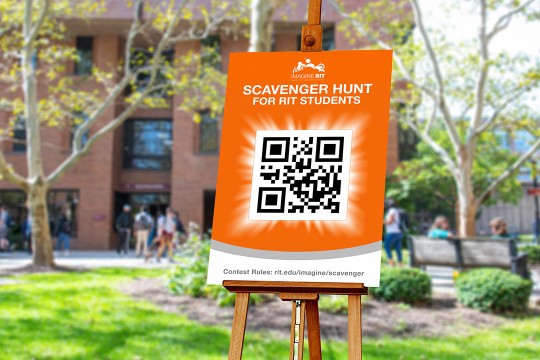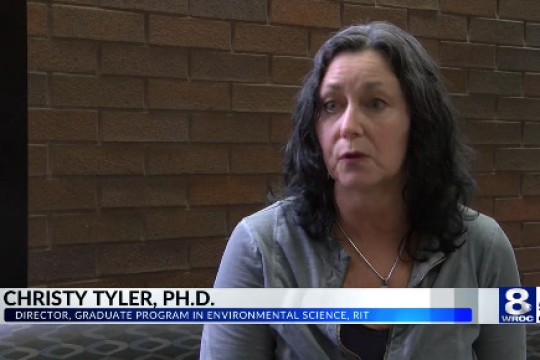RIT Professor Brings Major International Linguistics Conference to Campus
Professor Hiroko Yamashita wins NSF grant to organize event
Rochester Institute of Technology does not have a linguistics department. But thanks to the efforts of Hiroko Yamashita, the university will host a major linguistics conference this month in collaboration with the University of Tokyo and the University of Illinois at Urbana-Champaign.
Yamashita, associate professor of Japanese and chair of the foreign language department at RIT, won a National Science Foundation grant for $17,915 to organize the International Conference on Processing Head-final Structures to be held at RIT on Sept. 21-22. Since 1991, only three related conferences have been held about head-final languages, a small subfield within psycholinguistics.
Psycholinguists like Yamashita study how people understand languages by identifying key words and phrases. They study how speakers of different languages intuitively know how to parse sentences and, likewise, how nonnative speakers learn new languages.
Scholars from around the world will convene at RIT to share research on languages that rely on a different type of sentence structure than used in English. The important words found at the beginning of English or most European languages—the verb, for instance—is found at the end of sentences in Japanese, Korean, Hindi, Basque, and in some Chinese and German constructions.
This group of languages has a “head-final structure” because the critical parts of the sentence—known in linguistic circles as the “head” are placed at the end or in the “final” position. Conversely, English has a “head-initial structure” because the important information comes first.
Basic psycholinguistic research has applications in reading research, language teaching, and assisting people with language disorders, as well as in computer software that understands human language and translates foreign languages.
“Humans have an abstract mechanism that makes them understand all types of sentences, even when they potentially have more than one way of interpretation,” Yamashita says. “We do it so effortlessly, but do not know how we do it. Finding out the abstract mechanism is the crucial departure to applications to other areas.”
Second language acquisition is another important aspect of psycholinguistic research that scholars will explore at the conference.
“How do learners of head-initial languages acquire head-final languages that are totally foreign to them?” Yamashita asks. “What is the challenge to them? What is the process? And how do they master different structures?”
One of the leaders in the field, Janet Dean Fodor, will be among the scholars lending insights to these questions. Fodor, a professor at the City University of New York, will give the keynote speech.
“Janet Dean Fodor is a legendary figure in psycholinguistics and also was the first to expand the scope of the field to head-final languages two decades ago,” Yamashita says. “It is such an honor to have her as a speaker at this opportunity to further advance the field.”
Yamashita hopes the conference inspires other faculty members at RIT to pursue collaborations within the university and beyond its borders. “I might be the only psycholinguist on the RIT campus working on Japanese,” Yamashita says, “but I was able to get support of relevant people all over the world, as well as those on campus. I would like to make this an example for collaborating. With today’s technology, distance is not a problem.”
RIT’s College of Liberal Arts and the Department of Foreign Languages, University of Richmond and University of Rochester are also supporting the conference. The talks are free and open to the public. However, registration is required for the receptions. For more information, visit www.rit.edu/~hfconf.














